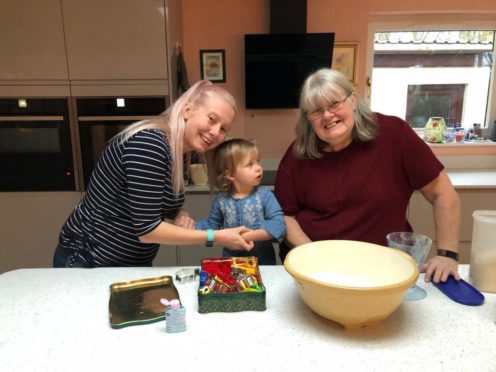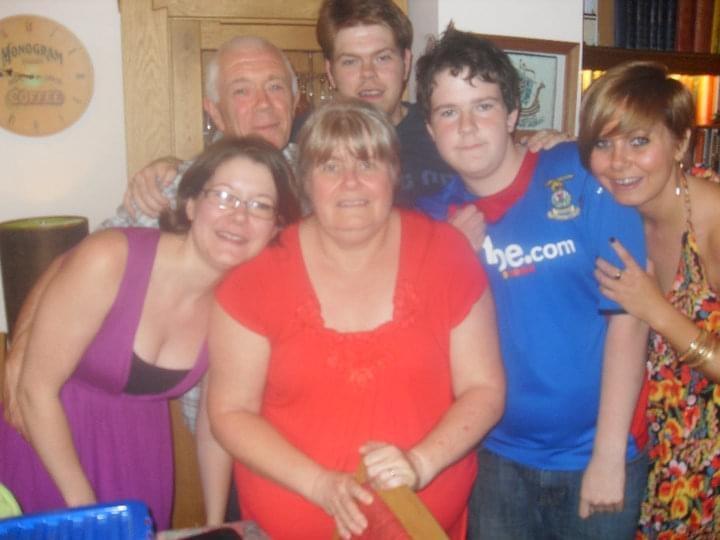Tributes have been paid to an internationally respected and recognised lecturer who inspired others never to give up following her death at the age of 64.
Born in Shettleston, Glasgow, in December 1955, Dr Lesley Diack was raised in East Kilbride before moving to Ellon after meeting her husband-to-be, Bill, while they both studied Scottish History at Edinburgh University.
Her husband of 43 years, now of Bridge of Don, said: “She walked in with long red hair down to her waist and I just though wow. I remember the very first minute I saw her.”
The pair spent the next three years as colleagues until, after graduation, a series of small but significant coincidences saw their paths continually cross and romance blossom.
One week after they first held hands, the pair were engaged in 1977 and five months later married and began their lives together in the north-east.
The couple welcomed daughters Fiona, in 1981, Shonagh three years later, and sons Andrew and Calum in 1988 and 1996 respectively.
Mrs Diack died in her sleep on Tuesday, December 22, just a week before she would have celebrated her 65th birthday.
Her professional life led her to a first north-east job at Chevron before becoming a stay-at-home mum while at the same time taking evening classes.
She began studying for her PHD aged 40, which she achieved three years later.
Contract work with the Welcome Foundation followed where she spent three years studying the Typhoid outbreak before taking up a post at Aberdeen University.
For the last decade she held the post of professor of Transdisciplinary and Technology Enhanced Learning at the School of Pharmacy and Life Sciences Robert Gordon University.
Her pioneering work in evidence-led research was recognised globally and she taught and spoken to conferences around the world including America, Japan and Australis.
Since her retirement from university lecturing in 2019 she has helped produce an app for Police Scotland which it’s said will influence policing for decades to come.
Mr Diack said: “She proved you were never too old and never not good enough.
“There’s quite a few women in their forties now have “Dr” in front of their name because of Lesley.
“She was really interested in women in academia and was well recognised for that work and she also enjoyed seeing other people develop and fulfil their potential.
“She would always offer a solution.”
Away from academia, Mrs Diack was an avid traveler, live music fan and regular contributor, alongside her husband, to talks across the north-east.
The couple, now grandparents, also prided themselves on taking the road less travelled on both abroad and at home.
“The other thing she loved was going up side roads,” Mr Diack added.
“There’s very few villages and roads off the beaten track in Scotland that we’ve not visited.”
Mrs Diack had a strong Christian faith and was a member of New Hills Parish Church, where she also served as children’s minister and led the Sunday School.
She also served on the board of Alzheimer Scotland, was chairwoman of Police Scotland’s ethical committee and editor-in-chief of the Association of Learning Technology.
Dr Sundari Joseph, vice-chairwoman of The Centre for the Advancement of Interprofessional Education, added: “Lesley was gifted academically as an educator and researcher, obtaining many prestigious funding awards when others were struggling to achieve this.
“The impact she had on so many lives will resonate for a long time.”
Professor Donald Cairns, head of the School of Pharmacy and Life Sciences at RGU, added: “The sudden passing of our dear colleague, Lesley, was a huge shock to everyone at RGU.
“Being a historian, Lesley never really fitted into a school of science, but that was one of her strengths. While we were toiling with an issue, being analytical, and getting bogged down in detail, Lesley could approach the problem from another angle and often solve the issue. She was wonderfully free with her time, and often gave advice, and mentored younger colleagues.
“Lesley was a larger-than-life character who touched every one she worked with. She will be deeply missed by everyone in the school.”











